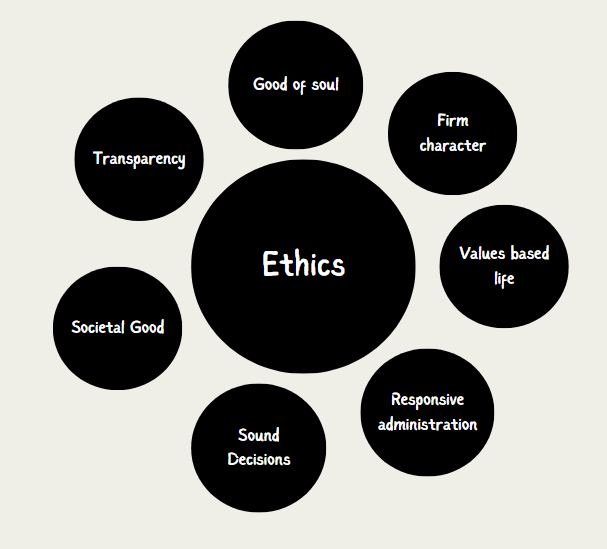29-05-2024 Mains Question Answer
Q. What is the aim of ethics in human life? And why is its significance heightened within the realm of Public Administration?
Ethics deals with questions about what is morally right and wrong, good and bad, and how individuals should behave in various situations. It explores principles and values that guide human conduct and decision-making. At its essence, ethics (both in theory and practice) aims to cultivate virtuous behaviour and promote the well-being and dignity of individuals and society as a whole.
The term ‘Ethics’ comes from the Greek word “ethos” which means character, habit, culture, etc. In Christianity, the definition of Ethics is well concretized in the maxim “Do unto others as you would have them do unto you”. Even the principle given in the Mahabharata ‘Atmani Pratikulani Paresham na samachary’ (i.e treat others as you would like to be treated, and don’t do things to them that you wouldn’t want them to do to you) expresses the meaning of Ethics.
In human life, ethics seeks:

- To provide a framework to understand which actions are considered acceptable or unacceptable within a given society or community.
- To provide the basic fundamental principles of moral judgement, especially concerning ends and means.
- To cultivate virtuous character traits such as honesty, integrity, compassion, and empathy. An example of this is seen in ethical or value education, where students are encouraged to develop moral virtues through activities that promote honesty, kindness, and respect for others.
- To uphold moral values that contribute to a sense of self-respect, and dignity and help individuals maintain consistency between their thoughts and actions.
- To build trust in relationships, whether they are personal, professional, or societal.
- To help maintain order and stability within social groups.
- To serve as a guide for promoting justice and fairness in society.
- To help in solving ethical dilemmas and reconcile conflicting values.
- To provide a code of conduct prescribing what humans ought to do in terms of duties, rights, obligations and benefits to society.
- To make people happy and healthy. For example, ethical doctors treat patients kindly and effectively, helping them feel better and live better lives.
- Thus, ethics is to help one to find what is good and how to get it.
In the context of public administration, ethics is all the more important because:
- To make administration truly responsive, love and compassion are necessary values among administrators. Ethics gives a human touch to administration and brings value-based administration to serve public interests.
- Ethics ensures the implementation of policies both in letter and spirit. This involves combating issues like nepotism, corruption, and policy paralysis.
- Public trust is vital for the functioning of government institutions. Ethical conduct by public officials helps to build and maintain trust among citizens, enhancing the legitimacy of government actions and decisions.
- During times of crisis or emergency such as pandemics, natural disasters, terrorist attacks, etc, ethical leadership is crucial for guiding public administration through challenging circumstances.
- Administrators often confront challenging ethical dilemmas in their roles. Ethics provides them with frameworks to evaluate their actions and their consequences in advance and come out of dilemmas.
- Ethical behaviour ensures that taxpayer funds are used for their intended purposes, minimizing waste, fraud, and corruption.
- By ensuring ethical decision-making processes which are inclusive, fair and participatory, administrators contribute to the strength and resilience of democratic institutions.
- Ethical governance ensures that policies and practices respect human rights, promote equality and non-discrimination, and safeguard the dignity of every person.
- Ethics upholds fundamental ethical principles within public service, such as integrity, honesty, and dedication to duty. These principles foster the highest levels of efficiency, transparency, and accountability in public administration.
- Ethical principles guide public administrators in treating all individuals fairly and impartially.
In summary, ethics is the backbone of human life as well as public administration, providing the moral compass that guides our decisions and actions. Ethics and life go hand in hand.

